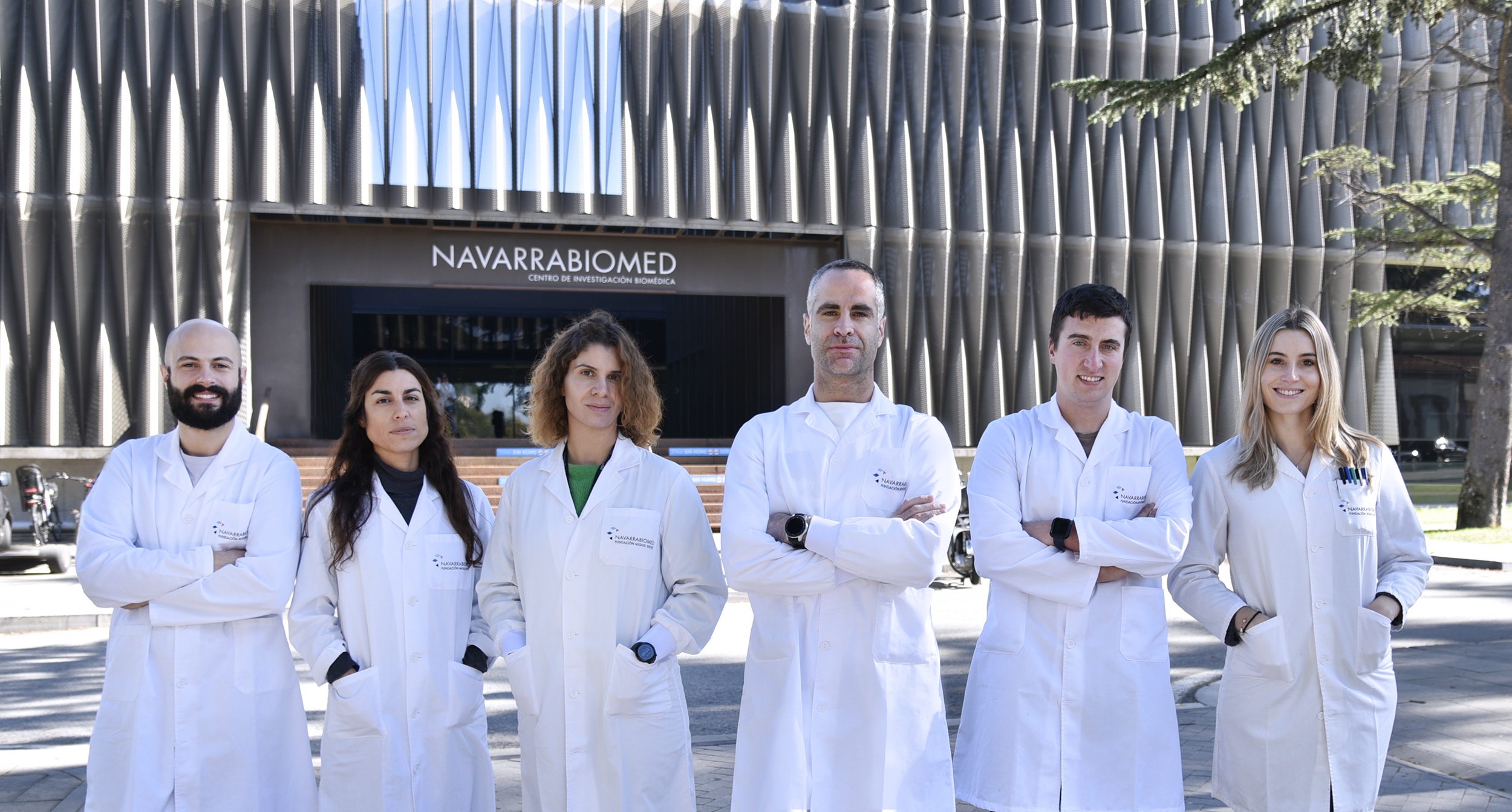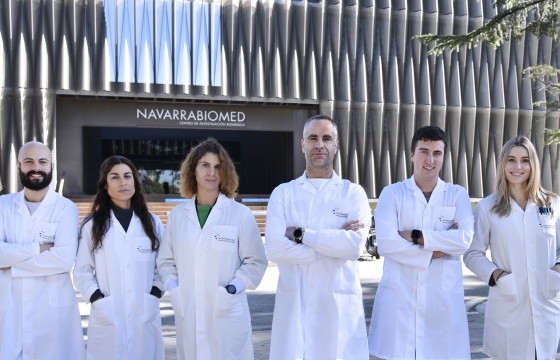
The Protein Crystallography and Structural Immunology Unit of Navarrabiomed deciphers autoimmunity mechanisms involved in the development of type 1 diabetes
• Today, Monday, November 14, is World Diabetes Day.
The Protein Crystallography and Structural Immunology Unit of Navarrabiomed has revealed a new molecular mechanism whereby autoimmune T cells are attracted by peptides (small protein fragments) present in the pancreas, something which interferes with its normal functioning and gives rise to the known insulin deficiency associated with type 1 diabetes. This alteration in the pancreatic tissue is one of the triggering causes of this autoimmune pathology, which in Navarra involves about 60 new diagnoses every year.
Specifically, the Navarrabiomed team, led by Jacinto López Sagaseta, has managed, with protein engineering techniques and X-ray crystallography, to identify contact that occurs between proteins of these autoreactive cells and of the pancreas involved in this autoimmune recognition. These findings have been recently published in "Frontiers in Immunology", an international scientific journal specialized in the field
The research work, carried out between 2020 and 2022, involved a close collaboration with the Pathogenesis and Treatment of Autoimmunity Group of the Hospital Clinic of Barcelona – IDIBAPS of Barcelona, led by Dr. Pere Santamaria, and with funding from the Ministry of Science and Innovation, the Generalitat de Catalunya, the Carlos III Health Institute, ERDF and the Canadian Institutes of Health Research (Instituts de recherche en santé du Canada).
Research development
X-ray crystallography is a scientific discipline established for the first time in Navarra by Jacinto López Sagaseta, a researcher who in previous periods has already fronted studies in the field of structural biology and immunology at international centres such as the University of Chicago and GSK Vaccines. To carry out these studies, the Unit's team uses cellular “factories” specializing in the production of proteins. Once produced, these proteins are isolated from the rest of the components present in the production with chromatographic techniques, to later literally crystallize them. These crystals formed by the proteins of interest allow the structural study and the definition of the fingerprint of this autoimmune interaction, and with atomic precision, since X-ray diffraction allows molecules (such as proteins) to be observed with Angstrom accuracy (one Angstrom is equivalent to one ten millionth of a millimetre), hence known as atomic resolution. In this way, the studies carried out by the researchers have made it possible to reveal, one by one, the contacts that these immune system cells (T cells) establish between their proteins and peptides present in the pancreas. This molecular and structural recognition is key to the activation of these cells, their subsequent adverse effect on the pancreas and the resulting insulin deficiency.
These findings represent a significant advance in the knowledge of autoimmune diseases such as type 1 diabetes. “The results reveal previously unknown mechanisms of interaction between cells of the immune system and the pancreas, which could lead to the design of new pharmacological therapies,” says López Sagaseta.
2,218 patients diagnosed with type 1 diabetes in Navarra
In May of this year, the number of living patients diagnosed with diabetes in Navarra was 42,004 (6.5% of the total population), of which 2,218 are patients diagnosed with type 1 Diabetes Mellitus (DM) and 39,786 with type 2 Diabetes Mellitus.
Photo caption: Team of researchers at Navarrabiomed who have participated in the study.
From left to right: Sergio Morales, Adela Rodríguez, Nerea Ugidos, Jacinto López, Alejandro Urdiciain and Elena Erausquin. Not appearing in the photo: Gilda Dichiara.


